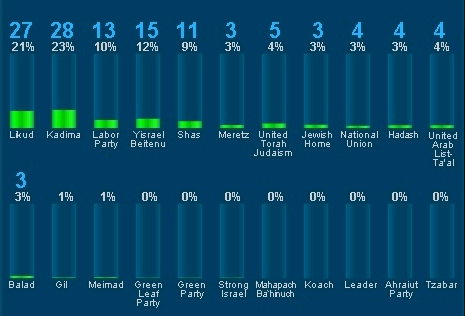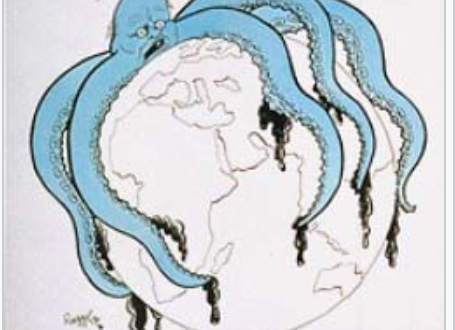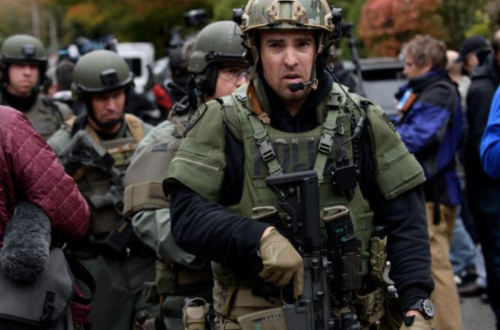This is a cross-post from Exit, Pursued by a Bear
This was going to be a piece responding to David Shariatmadari’s hatchet job on Maajid Nawaz, but in the time since I started writing this essay, it’s received the controlled demolition that it richly deserves: both by Nawaz himself and over at Left Foot Forward. It’ll suffice to say that this was a particularly unpleasant hit piece on one of Britain’s leading reformist Muslim voices, appearing in a paper that not two weeks ago published a remarkably softball interview with Hizb ut-Tahrir’s executive committee’s chairman. One gets the impression that the Graun, a purportedly liberal paper, would have been more kindly inclined to Nawaz had he continued to associate with supporters of a British caliphate than commit the cardinal sin of meeting with David Cameron.
Equally, what I’d only intended to touch on in passing – Giles Fraser’s recent defence of radical Islam from what he sees as David Cameron’s assault on it – has grown to become the focus of the piece. What’s interesting about this article is that both on its surface, and on every level underlying the surface, it’s nonsense confected with absurdity: a progressive Christian minister writing in defence of the most totalitarian and oppressive interpretations of a faith he doesn’t belong to. Nowhere does Fraser indicate that he finds the views obnoxious, but nevertheless wishes, Voltaire-style, to advocate their right to be expressed. Quite the opposite: he seems enraptured by the audacity of asserting, frankly, medieval ideas as – at the very least – worthy of consideration, and caricaturing those who hold qualms about this type of approach as not just opponents of free speech but the modern-day equivalents of those who would shoot the Levellers. The interesting question then becomes: what explains this monumental myopia on the part of somebody who is clearly well-educated and whose heart, broadly speaking, appears to be in the right place?
Fraser begins by painting a picture of the Church of England that’s familiar to anyone who’s ever lived here: a theological comfort blanket for the nation, more a social organisation than a religious one and flinching away in genteel horror from anything that smacks of radicalism. (To steal a rather good line from Yes Minister, which dealt with this very topic: ‘An atheist clergyman couldn’t continue to draw his stipend. So, when they stop believing in God, they call themselves “Modernists”‘.) The end product of this religious homeopathy, in Fraser’s take, is the ‘wet non-committal English clergyman’, a figure of affectionate parody in our national culture. I’m willing to bet everyone reading this has a pretty clear mental image of the type of person Fraser’s caricaturing here, although I’d take exception to the implication that the English only began to mock their clerics ‘from the end of the 17th century’.
Fraser’s clear dissatisfaction with the bourgeois state of affairs he describes comes through in full force when he turns to the topic of Islam: ‘thankfully, it disrupts this absurd game and refuses to play by the rules. Its practitioners want to talk about God, sex and politics rather than mortgages, school places and the latest Boden catalogue. And good for them.’ Leaving aside for a moment the fact that an authentic liberal should only want to involve God in sex by consent of all parties involved, and involve God in politics with the utmost leeriness, this is the first indication in Fraser’s piece of the fundamental flaw that runs through it: the identification of opposition to the present shape of British society as desirable in and of itself. This is how we then get the spectacle of a left-wing clergyman comparing Islamist radicals such as Hizb ut-Tahrir to the Levellers, and concluding with this jaw-droppingly wrong-headed statement: ‘attacking [non-violent extremism] is simply an attack on thinking big, thinking differently and arguing passionately’.
This is a statement of the bloody obvious, but nevertheless one that is worth making: not all non-violent extremism is the same. Yes, it’s possible to group all extreme views that don’t advocate violence under a single heading for the aforementioned Voltairean purpose, and yes, genuine threats to liberty of expression most often come from governments (not even necessarily badly-intentioned governments) attempting to restrict by law the boundaries of acceptable debate: generally they’re wrong more often than they’re right, and even when they’re right they still shouldn’t have the power to do so. But conflating groups like Hizb ut-Tahrir with the Levellers, as Fraser does, is an astonishing insult to what the Levellers stood for, even more appalling for coming at the hands of the kind of left-wing writer who you might expect to revere them: the Levellers wished to expand democracy in Britain. Hizb ut-Tahrir wish to abolish democracy in Britain. These are not the same things.
In a society where virtually every opinion short of support for violent revolution (and sometimes, including that) can be expressed without fear of legal sanction, the only controversial views left to stand up for are those that question the fundamental basis of the permissive society itself. Even this is not inherently a bad thing: the question of whether liberals should tolerate intolerant views has bedevilled cleverer minds than mine ever since liberalism’s earliest days, and I’m not going to settle it here, but it is undoubtedly true that attempts to put any view beyond the parameters of debate – either as so manifestly true that they can’t be called into question, or so manifestly false that they should never be asserted – have almost always done more harm to liberal societies than an open airing of the views themselves. John Stuart Mill once suggested that, in cases where a certain opinion has reached the point of becoming uncontested, it might be necessary for people to argue the opposite point of view simply to reap the benefits of having a lively debate; ‘some contrivance for making the difficulties of the question as present to the learner’s consciousness, as if they were pressed upon him by a dissentient champion, eager for his conversion’. Nevertheless, any free-speech advocate has to remain conscious of the fact that many of those who criticise the basis of modern Western society – hypocritical and flawed as it often proves itself to be – don’t do so with laudable aims, but rather would, if it were in their power, replace it with something infinitely worse.
Fraser doesn’t do this. At the end of the essay, he almost blithely asserts the supremacy of religious conscience over adherence to laws democratically passed in Parliament: ‘I believe there is an authority greater than yours – one I would obey before I would obey the laws of this land.’ If he’s given any thought to the core democratic principle that such an approach is in theory a recipe for anarchy and is in practice a recipe for theocracy, it’s not evident from what he’s written. Fraser’s final paragraph contains what I’m sure he intended to be a ringingly defiant, rather than laughably bathetic, challenge to David Cameron: ‘I believe in pulling the mighty from their thrones and lifting up the lowly… and if that makes me a dangerous extremist, Mr Cameron, then you probably ought to come over to south London and arrest me now.’ Never mind that Fraser is in no more danger of being arrested today than he was the day before he wrote the article – for the very good reason that we live in a more-or-less free country with a more-or-less free press, a state of affairs I’m not sure he appreciates – Fraser also overlooks the fact that the people he’s writing in defence of, inasmuch as they can be counted among the lowly, only want the mighty pulled from their thrones so that they can sit in them themselves.
I’ve quoted from Mill earlier; to conclude, I’m going to cheat, and borrow from him again. In the final chapter of On Liberty, discussing the practical applications of the theory he’s outlined, Mill flatly denies that a person can choose to alienate their own liberty by selling themselves as a slave: ‘The principle of freedom cannot require that he should be free not to be free’. This principle is no less true for nations than it is for individuals. Yes, even anti-democratic views have a right to be expressed, but these are not ‘great ideas’, as Fraser calls them: they’re tawdry, regressive ideas, rancid and divisive and not to be flirted with just for the radical frisson one gets from engaging in a bit of safe and shallow anti-Conservative posturing. Defend to the death the right of Islamists and fascists, of would-be theocrats and totalitarians, to speak, yes… but despise, too, what they say. And if the latter isn’t as important to you as the former, then you have no right to call yourself a liberal.


